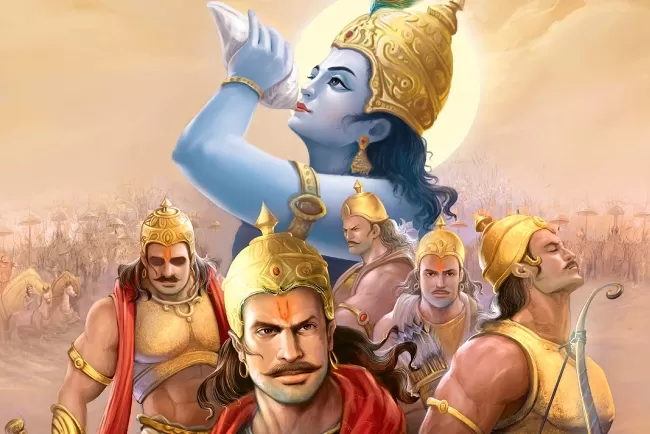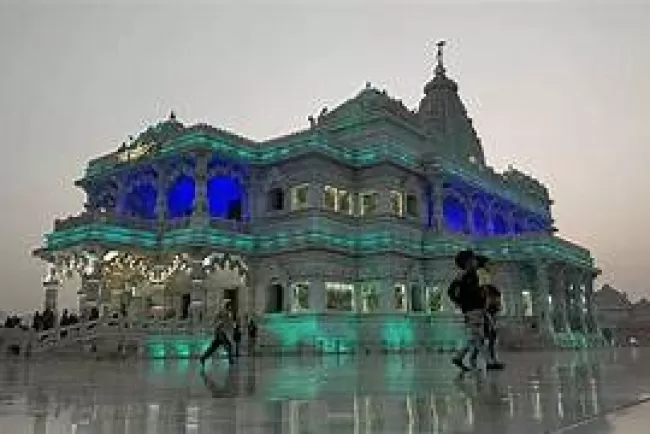Lord Ganesh: The Symbolism and Significance of the Divine Elephant-Headed Deity...!!!
Lord Ganesh's story is a tapestry of mythology, symbolism, and cultural significance. As the remover of obstacles and the god of beginnings, Ganesh occupies a special place in Hindu worship. His tales continue to inspire and teach valuable lessons about devotion, wisdom, and the harmonious blending of diverse qualities.
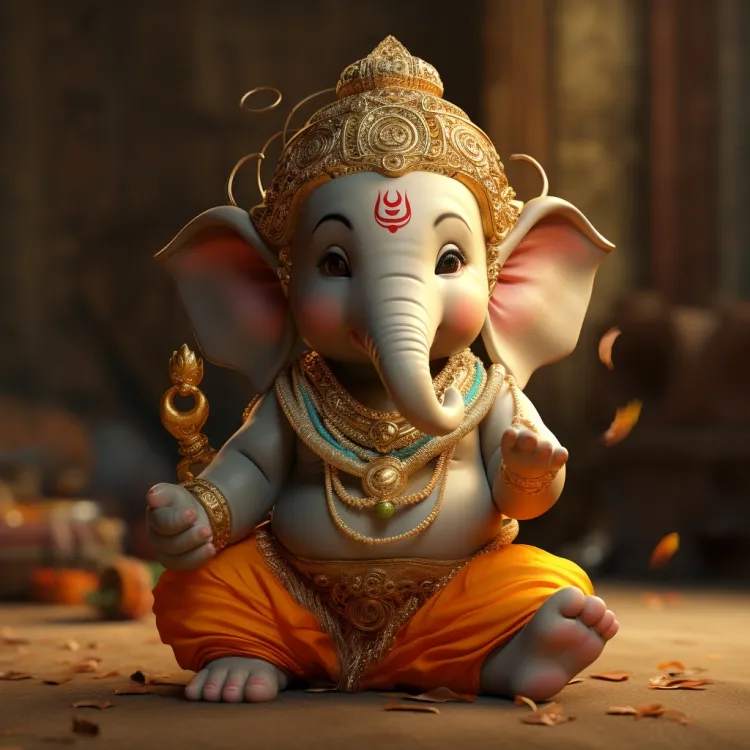
Lord Ganesh, also known as Ganesha or Ganapati, is one of the most revered deities in Hinduism. He is worshipped as the remover of obstacles, the god of beginnings, and the patron of arts and sciences. The elephant-headed god holds a special place in the hearts of devotees, and his story is rich with symbolism and cultural importance. Here’s a detailed account of Lord Ganesh's story:
1. Birth of Lord Ganesh
The story of Lord Ganesh's birth is fascinating and varies slightly across different texts and traditions. The most popular version of the story is found in the Puranas, ancient Hindu scriptures.
According to the legend, Goddess Parvati, the wife of Lord Shiva, created Ganesh from the turmeric paste she used for bathing. She molded the paste into the shape of a boy and breathed life into him. She then asked Ganesh to guard the entrance while she took a bath. Ganesh, devoted to his mother's instructions, stood guard at the door.
2. The Encounter with Lord Shiva
While Parvati was bathing, Lord Shiva returned home and found Ganesh guarding the door. Not recognizing the boy, Shiva demanded entry. Ganesh, following his mother's orders, refused to let Shiva in. This led to a fierce confrontation between the two.
In his rage, Shiva beheaded Ganesh with his trident. When Parvati emerged and saw her son's lifeless body, she was devastated and demanded that Shiva restore Ganesh to life. Realizing his mistake and unable to bear Parvati's grief, Shiva sent his followers, the Ganas, to find the head of the first living being they encountered.
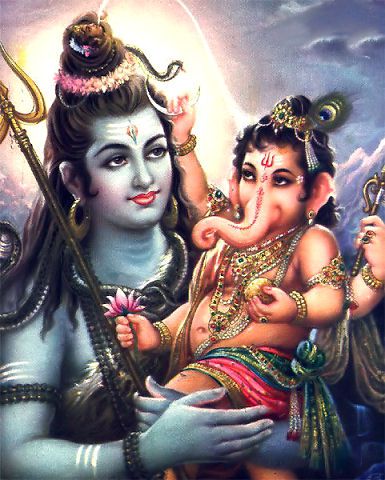
3. The Elephant Head
The Ganas soon returned with the head of a powerful elephant. Shiva placed the elephant head on Ganesh's body and brought him back to life. To appease Parvati and honor Ganesh, Shiva bestowed upon him the status of the foremost god, to be worshipped at the beginning of all rituals and ceremonies.
Thus, Ganesh became the elephant-headed god, symbolizing the fusion of human and animal qualities, and representing wisdom, strength, and intelligence.
4. Significance and Symbolism
Lord Ganesh's elephant head is rich in symbolism. The large head signifies wisdom, understanding, and a discriminating intellect. The small eyes symbolize concentration and the ability to focus on details. His large ears represent the ability to listen carefully and assimilate ideas.
Ganesh's potbelly signifies generosity and total acceptance. He is often depicted holding a modak (a sweet delicacy) in one of his hands, symbolizing the rewards of a disciplined life. The mouse at his feet, often shown as his vehicle (vahana), represents the ego, which must remain grounded and under control.
5. Ganesh Chaturthi
Ganesh Chaturthi is the grand festival celebrating the birth of Lord Ganesh. It is one of the most widely celebrated festivals in India, particularly in the states of Maharashtra, Karnataka, Andhra Pradesh, and Tamil Nadu. The festival lasts for ten days, starting on the fourth day of the Hindu month of Bhadrapada (August-September).
During Ganesh Chaturthi, beautifully crafted idols of Ganesh are installed in homes and public pandals (temporary structures). Devotees offer prayers, sing hymns, and perform rituals. The festival culminates with the immersion (visarjan) of the idols in rivers, lakes, or the sea, symbolizing Ganesh's return to his celestial abode and the dissolution of all obstacles.
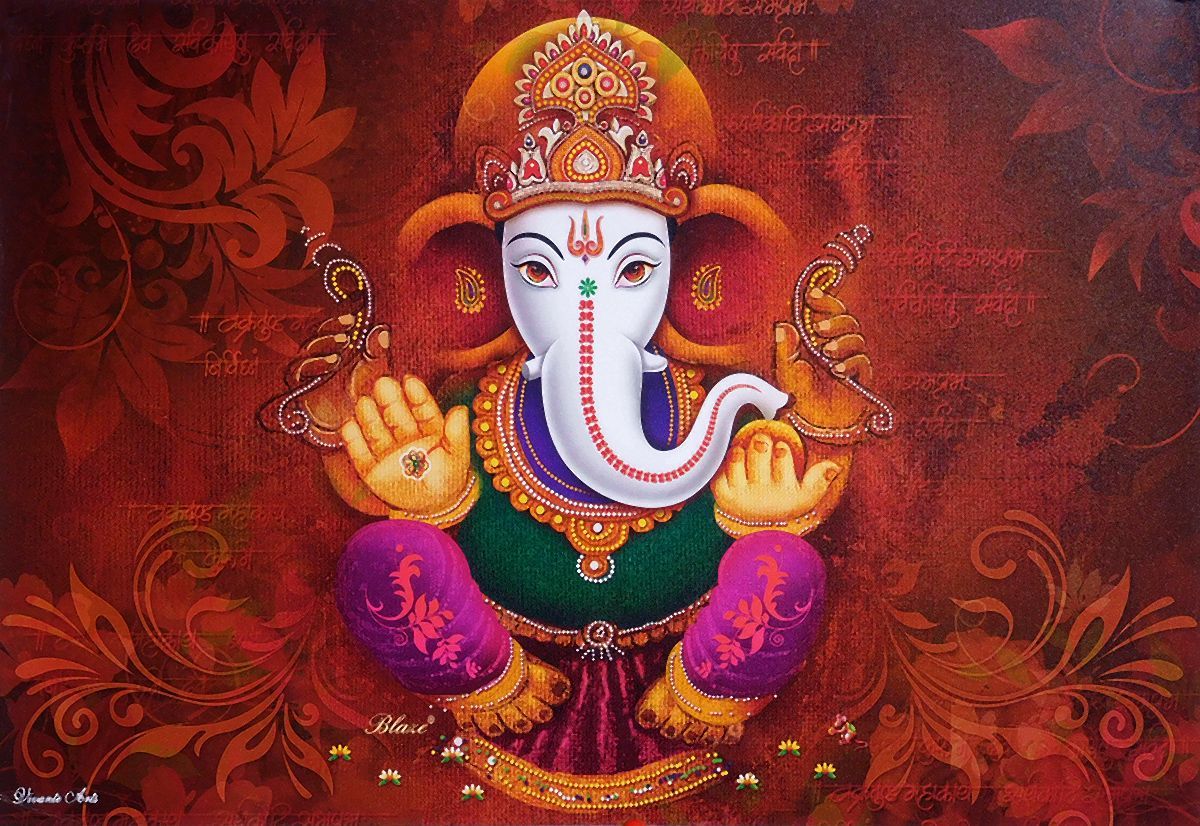
6. Other Legends and Stories
Apart from his birth story, several other legends are associated with Lord Ganesh. One such story is the writing of the Mahabharata. Sage Vyasa chose Ganesh to be his scribe for the epic. Ganesh agreed on the condition that Vyasa recite the verses continuously, without pausing. Vyasa, in turn, imposed a condition that Ganesh understand each verse before writing it down. This ensured that both the recitation and writing were performed flawlessly.
Another popular story is the competition between Ganesh and his brother Kartikeya. To determine who was the wiser and more capable, their parents, Shiva and Parvati, challenged them to circle the world three times. While Kartikeya set off on his peacock, Ganesh simply circled his parents, declaring that they represented the world to him. Impressed by his wisdom, Shiva and Parvati declared Ganesh the winner.
Lord Ganesh's story is a tapestry of mythology, symbolism, and cultural significance. As the remover of obstacles and the god of beginnings, Ganesh occupies a special place in Hindu worship. His tales continue to inspire and teach valuable lessons about devotion, wisdom, and the harmonious blending of diverse qualities.
What's Your Reaction?








